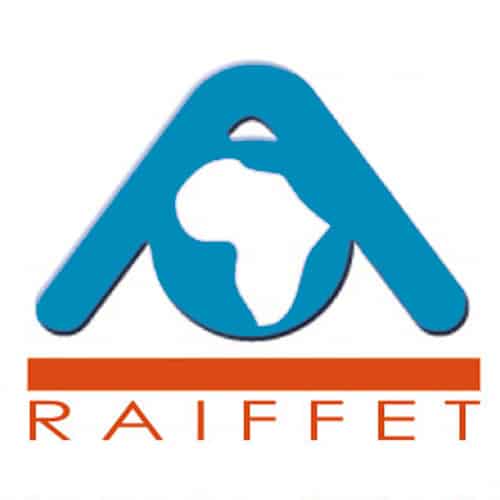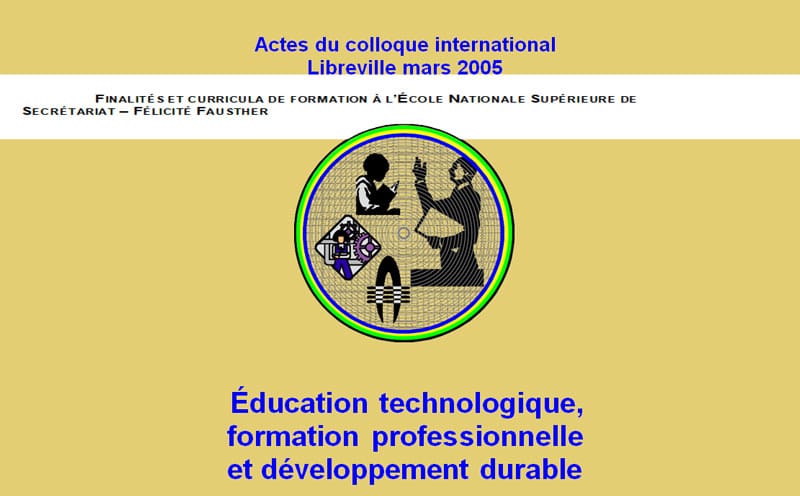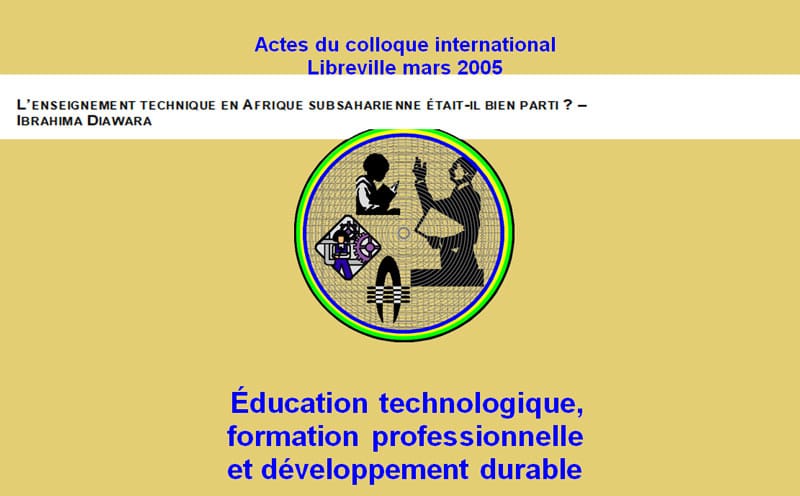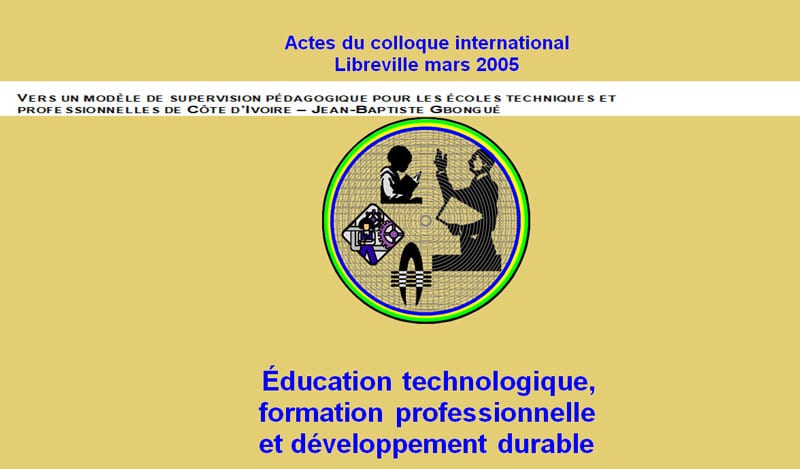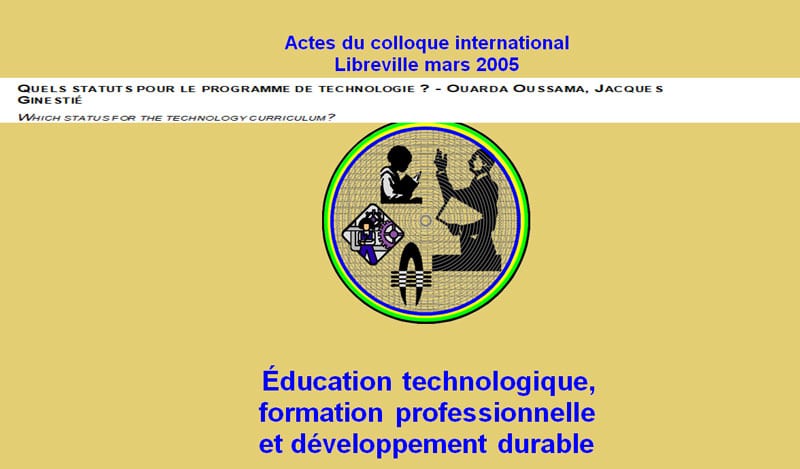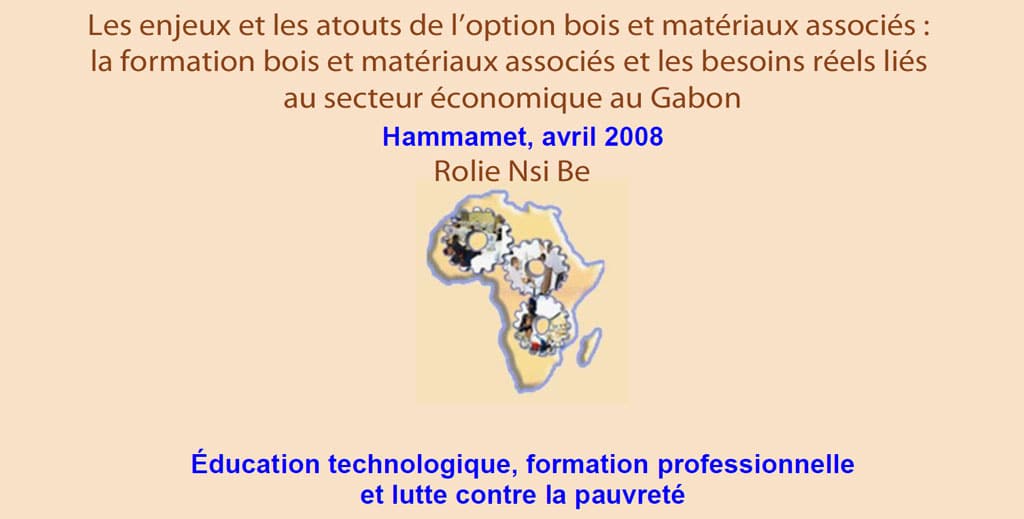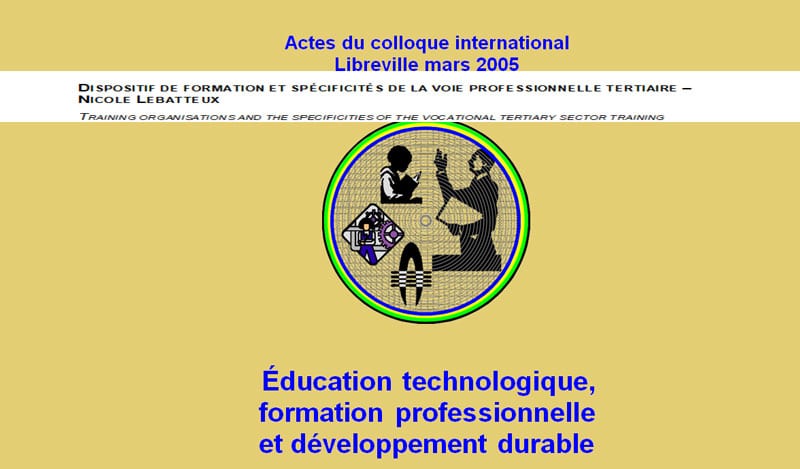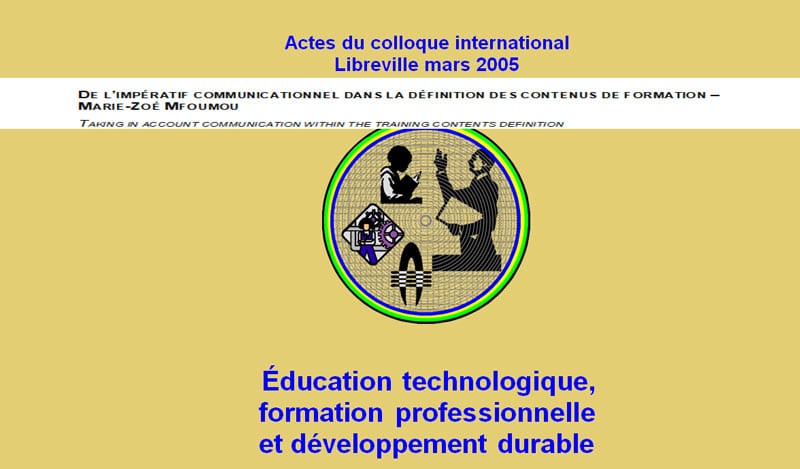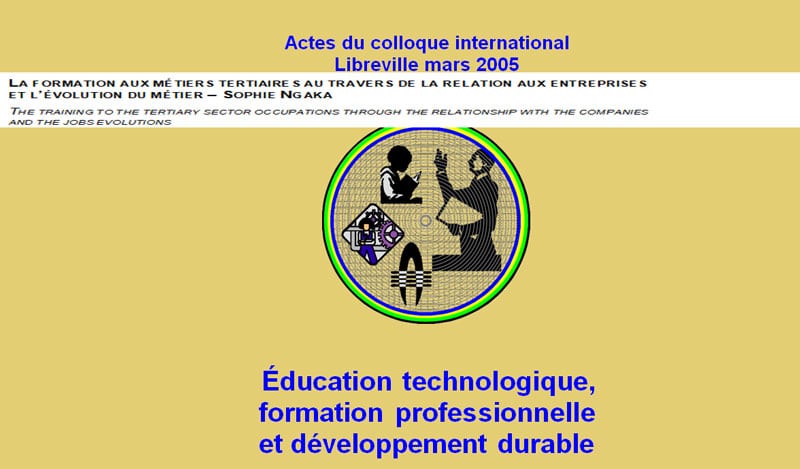
ANFPP UNE AGENCE NATIONALE AU SERVICE DE LA FORMATION PROFESSIONNELLE JULES PIÉBIE LIBREVILLE2005
ANFPP, THE TRAINING AND VOCATIONAL IMPROVEMENT OFFICE
Directeur Général – ANFPP – Libreville, Gabon
SUMMARY
The vocational training and the social reintegration Ministry, the training and vocational improvement office (ANFPP) which is its organization of setting up as far as vocational training is concerned are both highly concerned by vocational training in Gabon. The (ANFPP) training and vocational improvement office has a group of 7 vocational centres spread out all over the national territory. Its missions are education, improvement and retraining of the staff needed for economic development of the country. The ANFPP must take the challenge and reach, with its partners the objectives aimed at by this project. When we tackle the theme about qualification and competence, we will try to bring a few answering elements to the following questions: do we have to take as a model, the school organizations of northern countries? What will be our objectives? What can be the cost? As far as school organization is concerned, it has adopted the conceptual frame of intervention of the vocational training engineering developed with the French-speaking nation’s international agency. The reform has already well been brought forward yet four challenges have not been reached yet: elaborating syllabuses, choice of knowledge, training of the staff. These four points have a same common denominator: skills and competence. In this respect, the reform must reorient its training trend based on the skill learning. The trainees will them obtain a good professional qualification. The reform will also develop learning strategies, which will facilitate skills acquisition: training in schools, alternate periods at school and at work, learning at work. In the same way, the reform must revise its assessment process, adapting it to the demands of its new school organization. We must not at all forget the development of our resources skills and qualifications. We mean trainers and managers. With the help of our partners we will have to make a great financial and human effort if we want to succeed in reaching our objectives.
RÉSUMÉ
Le Ministère de la Formation Professionnelle et de la Réinsertion Sociale, l’Agence Nationale de Formation et de Perfectionnement Professionnels (ANFPP) qui est son organisme de mise en œuvre en matière de Formation Professionnelle, sont au cœur de la Réforme de la Formation Professionnelle au Gabon. L’ANFPP avec son réseau de sept Centres de Formation repartis sur le territoire national et dont la mission est la formation, le perfectionnement et le recyclage des personnels nécessaires au développement économique du pays, se doit de relever ce grand défi et d’atteindre avec ses partenaires les objectifs visés par ce projet. En abordant le thème qualification et compétences, nous tenterons d’apporter quelques éléments de réponse aux questions suivantes : Doit-on adopter comme modèle, les organisations scolaires des pays du Nord ? Dans quel objectif ? A quel prix ? Concernant son organisation scolaire, elle a adopté le cadre conceptuel d’intervention de l’ingénierie de la formation professionnelle développé avec l’Agence International de la Francophonie (AIF) regroupant tous les pays francophones. Bien que des avancées significatives soient déjà réalisées au niveau de la réforme, quatre grands défis l’attendent, à savoir :
- L’élaboration des programmes
- Le choix des stratégies d’apprentissage
- L’évaluation des acquis
- La formation des ressources
Ces quatre points ont comme dénominateur commun, qualification et compétences. A cet égard, elle se doit de réorienter ses filières de formation sur les besoins du marché du travail et de développer ses programmes sur une base d’acquisition des compétences et obtenir ainsi pour ses finissants (stagiaires) une qualification professionnelle reconnue. Elle devra mettre en place des stratégies d’apprentissage facilitant l’acquisition des compétences, tels que :
- Formation en établissement ;
- Formation en alternance étude-travail ;
- L’apprentissage en milieu de
En outre, par la même occasion, revoir son processus d’évaluation en l’adaptant aux exigences de sa nouvelle organisation scolaire. Il ne faudra surtout pas oublier le développement des compétences et la qualification de nos ressources humaines : formateurs et gestionnaires. C’est au prix d’efforts humain et financier importants que nous réussirons avec l’aide de nos partenaires à atteindre nos finalités.
